Department Profile
Department Establishment:
- B.Sc Mathematics -1969-70
- M.Sc Mathematics -1982-83
- B.Sc Mathematics with Computer Applications-2015-16
- B.Sc Mathematics (Self Financed)- 2022-23
- Ph.D Mathematics - 2021-22
The Department of Mathematics is one of the oldest departments in the college. Teaching of Mathematics started right from the inception of the college at P.U.C level. The Department of Mathematics offers B.Sc. Mathematics, B.Sc. Mathematics with Computer Applications and M.Sc. Mathematics Programmes. The Department has 13 faculty members who strive hard to maintain a record of good service with the vision of offering quality education and inculcating social responsibility. The Department encourages students to carry out innovative research in the field of Graph theory, Topology and Differential equations. The Department of Mathematics has successfully completed 50th year and celebrated golden jubilee in the college. The department always keep excellence in focus and delivers quality service to match the needs of education system and society.
Unique Features of the Department
VNR District Cluster colleges joint Faculty Programme
To maintain the constructive relationship with the neighbouring institutions, the programme entitled “VNR District Cluster Colleges Joint faculty programme in Mathematics” was started in the year 1987 with our Principal as Co-ordinator and HOD as convenor. At the beginning of every year the HOD’s of 10 member colleges meet at our college to chalk out the programmes such as student’s seminar, oral quiz, paper presentation and Guest lecture that are to be scheduled for each member College. A programme is conducted at every month. Staff members and all II M.Sc students of all member colleges participate it. The Department is successfully convening this cluster college programme for the past 34 years.
In order to enhance Research, the Department of Mathematics is upgraded as Post Graduate and Research Department of Mathematics on 29.03.2022
| Name of the Programme | Ph.D Mathematics |
| Duration | 3 - 5 Years |
| Intake |
4 Candidates for Assistant Professor 6 Candidates for Associate Professor 8 Candidates for Professor No.of Research Guides Available : 3 |
| Eligibility | Candidates who are Bachelor’s degree and Master's degree holders from the same/relevant Discipline of Study in which they wish to get admission |
Best Practices of the department
- VNR District Cluster Colleges Programme
- CSIR/NET/SET Preparatory Workshop
- Intra-Departmental Seminar
- Ramanujan Day Celebrations
- UG &PG Association
- Extension Activities
- Eco Conscious Activity.
Vision:
To provide the students with a value based sustained quality education catering to the needs of the society and the advancements in all fields of Mathematics which prepares the students to face the global competence.
Mission:
- To design an updated curriculum which enables the students acquire knowledge in all frontier areas of Mathematics gradually ranging from basic level to higher level.
- To impart knowledge in Applied Mathematics and Computer Applications.
- To develop logical thinking and problem solving ability.
- To improve numerical and computer skill which enables them a better performance in Competitive Examinations.
- To promote research culture.
| Name of the Programme | B.Sc Mathematics |
| Duration | 3 years |
| Intake | 72 |
| Eligibility | 1. For admission to Under Graduate Programmes in Mathematics, a candidate must have passed the Higher Secondary Examination of TamilNadu or an examination (like the CBSE) recognized by the universities as equivalent there to, who have opted the following subjects as Part III-Mathematics (100), Physics (100), Chemistry (100), Biology/Computer Science (100) in Plus Two. 2. Based on the rank list prepared for a total of 400 marks in the above subjects and subject to the norms as specified by the Government, admission will be made. 3. The upper age limit for admission to U.G. Programmes will be 21 (twenty one) years as on 1st July of the year of admission. However, a relaxation of 5 years is permitted for differently abled as per G.O.Ms.No.239, S.W. dated 3-9-93. SC/ST/BC/MBC/DNC candidates and women candidates, may be allowed the age relaxation of 3 years beyond 21 years for the admission into UG Programme. |
| Name of the Programme | B.Sc. Mathematics with Computer Applications |
| Duration | 3 years |
| Intake | 72 |
| Eligibility | 1. For admission to B.Sc.Mathematics with Computer Applications, a candidate must have passed the Higher Secondary Examination of Tamil Nadu or an examination (like the CBSE) recognized by the universities as equivalent there to, who have opted the following subjects as Part III- Mathematics (100), Physics (100), Chemistry (100), Biology/Computer Science (100) in Plus Two. 2. The upper age limit for admission to U.G. Programmes will be 21 (twenty one) years as on 1st July of the year of admission. However, a relaxation of 5 years is permitted for differently abled as per G.O.Ms.No.239, S.W. dated 3-9-93. SC/ST/BC/MBC/DNC candidates and women candidates may be allowed the age relaxation of 3 years beyond 21 years for the admission into UG programme. |
| Name of the Programme | M.Sc Mathematics |
| Duration | 2 years |
| Intake | 43 |
| Eligibility | For admission to M.Sc Mathematics, a candidate must have passed a 3 years degree course in Mathematics or Mathematics with Computer Applications or programme equivalent to Mathematics (under the 10+2+3 pattern) recognized by the university as equivalent there to. |
| For admission to PG programme, the qualifying examination marks in Part III (Major, Allied/Ancillary) alone will be taken into consideration. | |
PLOs -PSOs- PEOs
Department of Mathematics
SYLLABUS 2023
B.Sc DEGREE PROGRAMME
Programme Learning Outcomes (PLO):
Programme Learning Outcomes are narrower statements that describe what students are expected to know and be able to do upon the graduation. These relate to the skills, knowledge and behaviour that students acquire in their study through the programmes.
PLO1: Disciplinary knowledge
Apply the knowledge of Arts, Science and Humanities to address fundamental and complex questions appropriate to their programmes.
PLO2: Critical thinking, Problem solving and Analytical reasoning
Make use of appropriate knowledge and skills to identify, formulate, analyze and solve problems in order to reach substantiated conclusions.
PLO3: Research related skills and scientific reasoning
Critically analyze research processes, products and practices with a view of strategic use of data in their field.
PLO4: Communication skills and Digital literacy
Demonstrate skills in oral and written communication and make use of ICT in various learning ambience.
PLO5: Team work and Leadership quality
Interact productively with people from diverse backgrounds as both leaders/mentors and team members with integrity and professionalism.
PLO6: Multicultural competence with Moral and ethical awareness
Defend the society against gender and environmental issues with moral and ethical awareness.
PLO7: Self-directed and Life-long learning
Formulate their own educational needs in a changing world in ways sufficient to maintain their competence and to allow them to contribute to the advancement of knowledge.
Programme Educational Objectives (PEOs):
The Graduates will be prepared to
PEO1: be proficient in core knowledge and excellent in statistical & computational skills,
help them to shine in Govt./Private Sectors and pursuing higher education.
PEO2: be excellent in computing ability to comprehend, analyze and design solutions for
real life problems and perform social, professional and ethical responsibilities.
PEO3: attend confidently the competitive and entrance exams like TNPSC, UPSC,
SSC, RRB and TANCET/GATE etc.,
Programme Specific Outcomes (PSO):
Programme Specific Outcomes denote what the students should be able to do in their discipline at the time of graduation. They are programme specific. The PSOs should be mapped to all the specified PEOs.
By the completion of the UG Mathematics programme, the learners will be able to
PSO1: acquire knowledge in core and applied branches of mathematics.
PSO2: formulate/convert real life problems of various disciplines into mathematical
modeling through mathematical techniques and tools.
PSO3: enhance problem solving, data analysis and decision making skills for future career /
entrepreneurship development.
M.Sc DEGREE PROGRAMME
Programme Learning Outcomes (PLO):
Programme Learning Outcomes are narrower statements that describe what students are expected to know and be able to do upon the graduation. These relate to the skills, knowledge and behaviour that students acquire in their study through the programmes.
PLO1: Disciplinary knowledge
Apply the knowledge of Arts, Science and Humanities to address fundamental and complex questions appropriate to their programmes.
PLO2: Critical thinking, Problem solving and Analytical reasoning
Make use of appropriate knowledge and skills to identify, formulate, analyze and solve problems in order to reach substantiated conclusions.
PLO3: Research related skills and scientific reasoning
Critically analyze research processes, products and practices with a view of strategic use of data in their field.
PLO4: Communication skills and Digital literacy
Demonstrate skills in oral and written communication and make use of ICT in various learning ambience.
PLO5: Team work and Leadership quality
Interact productively with people from diverse backgrounds as both leaders/mentors and team members with integrity and professionalism.
PLO6: Multicultural competence with Moral and ethical awareness
Defend the society against gender and environmental issues with moral and ethical awareness.
PLO7: Self-directed and Life-long learning
Formulate their own educational needs in a changing world in ways sufficient to maintain their competence and to allow them to contribute to the advancement of knowledge.
Programme Educational Objectives (PEOs):
The Graduates will be prepared to
PEO1: have the caliber to work in various colleges, universities and shine in higher level
administrations like UPSC,TNPSC, IBPS, etc.,
PEO2: have the ability to pursue Research, complying to ethical values and provide
optimistic solutions to real life problems.
PEO3: develop relevant knowledge and skills appropriate to professional activities.
Programme Specific Outcomes (PSO):
Programme Specific Outcomes denote what the students should be able to do in their discipline at the time of graduation. They are programme specific. The PSOs should be mapped to all the specified PEOs.
By the completion of the PG Mathematics programme, the learners will be able to
PSO1: have a strong foundation in core areas of mathematics, both pure and applied
Mathematics.
PSO2: develop analytical, logical & computational skills and implement them in Inter &
multi-disciplinary learning environment.
PSO3: have necessary skills and expertise in the field of research & developments through
conferences/seminars and projects.
SYLLABUS 2020
Programme Outcomes (PO):
Programme Outcomes are narrower statements that describe what students are expected to know and be able to do upon the graduation. These relate to the skills, knowledge and behaviour that students acquire in their study through the programmes.
PO1: Disciplinary knowledge
Apply the knowledge of Arts, Science and Humanities to address fundamental and complex questions appropriate to their programmes.
PO2: Critical thinking, Problem solving and Analytical reasoning
Make use of appropriate knowledge and skills to identify, formulate, analyze and solve problems in order to reach substantiated conclusions.
PO3: Research related skills and scientific reasoning
Critically analyze research processes, products and practices with a view of strategic use of data in their field.
PO4: Communication skills and Digital literacy
Demonstrate skills in oral and written communication and make use of ICT in various learning ambience.
PO5: Team work and Leadership quality
Interact productively with people from diverse backgrounds as both leaders/mentors and team members with integrity and professionalism.
PO4: Communication skills and Digital literacy
Demonstrate skills in oral and written communication and make use of ICT in various learning ambience.
PO5: Team work and Leadership quality
Interact productively with people from diverse backgrounds as both leaders/mentors and team members with integrity and professionalism.
PO6: Multicultural competence with Moral and ethical awareness
Defend the society against gender and environmental issues with moral and ethical awareness.
PO7: Self-directed and Life-long learning
Formulate their own educational needs in a changing world in ways sufficient to maintain their competence and to allow them to contribute to the advancement of knowledge.
Programme Specific Outcomes (PSO):
Programme Specific Outcomes denote what the students should be able to do at the time of graduation. They are programme specific. It is mandatory that each PO should be mapped to the respective PSO specified in the programme in order.
By the completion of the M.Sc Mathematicsprogramme, the learners will be able to
PSO1: formulate and develop mathematical arguments in a logical manner.
PSO2: tackle complex problems, reveal structures, clarify problems, discover suitable analytic / numerical methods and interpret solutions.
PSO3: empowered to take up academic research.
PSO4: communicate the recent trends of Mathematics in various fields effectively.
PSO5: work as a team member having skills for effective collaboration to ad hoc diverse purposes.
PSO6: communicate professionally and face challenges ethically in the society.
PSO7: recognize the need for the ability to engage in independent and life-long learning in the broadest context of emerging trends in Mathematics.
Programme Educational Objectives (PEOs):
The Graduates will
PEO1: have the caliber to work in various colleges, universities and shine in higher level administrations like UPSC,TNPSC, IBPS, etc.,
PEO2: have the ability to pursue Research in any branch of Mathematics, complying to ethical values.
PEO3: develop entrepreneurial skills, to be empowered according to the professional requirement and become self-dependent.
UG DEGREE PROGRAMME
Programme Outcomes (PO):
Programme Outcomes are narrower statements that describe what students are expected to know and be able to do upon the graduation. These relate to the skills, knowledge and behaviour that students acquire in their study through the programmes.
PO1: Disciplinary knowledge
Apply the knowledge of Arts, Science and Humanities to address fundamental and complex questions appropriate to their programmes.
PO2: Critical thinking, Problem solving and Analytical reasoning
Make use of appropriate knowledge and skills to identify, formulate, analyze and solve problems in order to reach substantiated conclusions.
PO3: Research related skills and scientific reasoning
Critically analyze research processes, products and practices with a view of strategic use of data in their field.
PO4: Communication skills and Digital literacy
Demonstrate skills in oral and written communication and make use of ICT in various learning ambience.
PO5: Team work and Leadership quality
Interact productively with people from diverse backgrounds as both leaders/mentors and team members with integrity and professionalism.
PO6: Multicultural competence with Moral and ethical awareness
Defend the society against gender and environmental issues with moral and ethical awareness.
PO7: Self-directed and Life-long learning
Formulate their own educational needs in a changing world in ways sufficient to maintain their competence and to allow them to contribute to the advancement of knowledge.
Programme Specific Outcomes (PSO):
Programme Specific Outcomes denote what the students should be able to do at the time of graduation. They are programme specific. It is mandatory that each PO should be mapped to the respective PSO specified in the programme in order.
By the completion of the B.Sc. Mathematics programme, the learners will be able to
PSO1: impart knowledge on the basics of core branches of Mathematics like Algebra, Analysis, Calculus, Vector Algebra, Trigonometry and Number theory.
PSO2: formulate, convert in to mathematical modelling and apply mathematical techniques to solve problems in science and various disciplines.
PSO3: analyse mathematical theorems and apply the concepts to arrive at solutions for real life mathematical problems.
PSO4: communicate effectively about Mathematics to both layman and expert audiences utilizing appropriate information and communication technology.
PSO5: work independently and collaborate effectively in team to achieve their goal.
PSO6: recognize the importance of adhering to science and its ethical values and become a responsible citizen.
PSO7: conduct self evaluation and continuously enrich themselves through life-long learning.
Programme Educational Objectives (PEOs):
The Graduates will
PEO1: be proficient in statistical and computational skills, help them to shine in Govt./Private Sectors, Banks, Railways, IT etc.,
PEO2: be excellent in computing ability to comprehend, analyze and design solutions for real life problems and understand the ethical ,social responsibilities.
PEO3: attend confidently the competitive exams and entrance exams like TNPSC, SSC, RRB and TANCET/GATE etc.,
UG DEGREE PROGRAMME IN MATHEMATICS WITH COMPUTER APPLICATIONS
Programme Outcomes (PO):
Programme Outcomes are narrower statements that describe what students are expected to know and be able to do upon the graduation. These relate to the skills, knowledge and behaviour that students acquire in their study through the programmes.
PO1: Disciplinary knowledge
Apply the knowledge of Arts, Science and Humanities to address fundamental and complex questions appropriate to their programmes.
PO2: Critical thinking, Problem solving and Analytical reasoning
Make use of appropriate knowledge and skills to identify, formulate, analyze and solve problems in order to reach substantiated conclusions.
PO3: Research related skills and scientific reasoning
Critically analyze research processes, products and practices with a view of strategic use of data in their field.
PO4: Communication skills and Digital literacy
Demonstrate skills in oral and written communication and make use of ICT in various learning ambience.
PO5: Team work and Leadership quality
Interact productively with people from diverse backgrounds as both leaders/mentors and team members with integrity and professionalism.
PO6: Multicultural competence with Moral and ethical awareness
Defend the society against gender and environmental issues with moral and ethical awareness.
PO7: Self-directed and Life-long learning
Formulate their own educational needs in a changing world in ways sufficient to maintain their competence and to allow them to contribute to the advancement of knowledge.
Programme Specific Outcomes (PSO):
Programme Specific Outcomes denote what the students should be able to do at the time of graduation. They are programme specific. It is mandatory that each PO should be mapped to the respective PSO specified in the programme in order. By the completion of the B.Sc Mathematics with Computer Applications programme, the learners will be able to
PSO1: apply the knowledge in pure, applied Mathematics and programming languages to solve Mathematical problems.
PSO2: provide optimistic solutions to social life problems by applying various Mathematical methods.
PSO3: become indepth, motivated researchers in a specific area of study with the ability to recognize and address important scientific problems.
PSO4: communicate effectively about the different concepts of Mathematics in various disciplines.
PSO5: collaborate effectively in a team to solve social and real-life problems.
PSO6: apply ethical principles and be committed to professional ethics & social responsibilities.
PSO7: apply the mathematical concepts in all the fields of learning including research and recognize the need and prepare for life-long learning.
Programme Educational Objectives (PEOs):
The Graduates will
PEO1: be excellent in teaching, programming skills and subject knowledge, take them to grow in education system and higher administrations like TNPSC, IPSC, LIC etc.,
PEO2: construct mathematical models for real life problems and obtain solution by analytic approach and perform social, professional, ethical responsibilities.
PEO3: explore critical thinking, programming skills in diverse areas of Mathematics and experience an environment conducive in cultivating skills for successful career entrepreneurship and higher studies.
Faculty Details
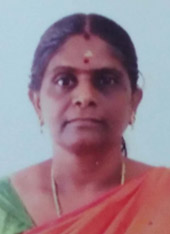
Dr.S.Pethanachi Selvam
M.Sc., PGDCA., M.Phil., Ph.D.
Associate Professor & Head
E-Mail pethanachi-mat@sfrcollege.edu.in Area of Specialization Graph Theory (Semi Graphs) VIDWAN Profile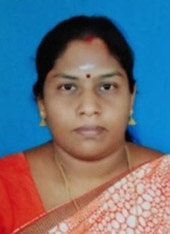
Dr.R.MaliniDevi
M.Sc.,M.Phil.,Ph.D.
Associate Professor
E-Mail malinidevi-mat@sfrcollege.edu.in Area of Specialization Mathematical Modelling VIDWAN Profile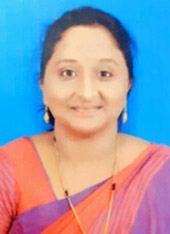
Dr. A.Mydeen Bibi
M.Sc., M.Phil., DGT., Ph.D.
Assistant Professor
E-Mail mydeen-mat@sfrcollege.edu.in Area of Specialization Graph Theory VIDWAN Profile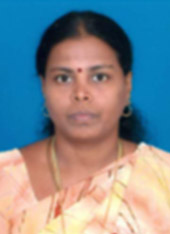
Dr. S.Kalaiselvi
M.Sc., PGDCA., M.Phil., Ph.D.
Assistant Professor
E-Mail kalaiselvi-mat@sfrcollege.edu.in Area of Specialization Mathematical Modelling VIDWAN Profile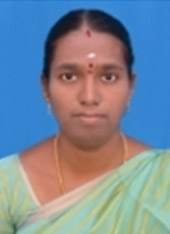
Mrs.N.Akila
M.Sc.,M.Phil.,NET ,SET, PGDCA.
Assistant Professor
E-Mail akila-mat@sfrcollege.edu.in Area of Specialization Time Delay Systems VIDWAN Profile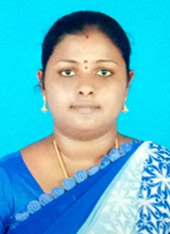
Dr.S.Pavithra
M.Sc., B.Ed., M.Phil., Ph.D.
Assistant Professor
E-Mail pavithra-mat@sfrcollege.edu.in Area of Specialization Mathematical Modelling VIDWAN Profile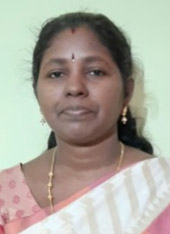
Dr.P. Santhi
M.Sc., M.Phil., PGDCA., ,Ph.D., SET
Assistant Professor
E-Mail santhi-mat@sfrcollege.edu.in Area of Specialization Topology VIDWAN Profile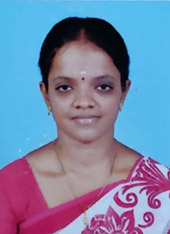
Dr. A.Muthuselvi
M.Sc., B.Ed., M.Phil.,, Ph.D.
Assistant Professor
E-Mail muthuselvi-mat@sfrcollege.edu.in Area of Specialization Graph Theory VIDWAN Profile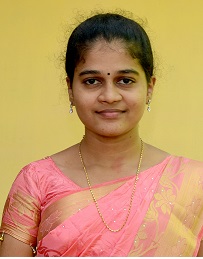
Ms. S. Kavitha
M.Sc., NET., NET(JRF)., GATE in Mathematics
Assistant Professor
E-Mail kavitha-mat@sfrcollege.edu.in Area of Specialization Algebraic Topology, Topology VIDWAN Profile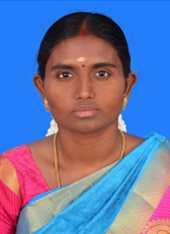
Mrs. U. Muthumari
M.Sc., M.Phil., SET.
Assistant Professor
E-Mail muthumari-mat@sfrcollege.edu.in Area of Specialization Topology VIDWAN Profile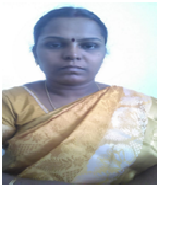
Dr.S.Mangala Lavanya
M.Sc., M.Phil., P.hd.,
Assistant Professor
E-Mail mangalalavanya-mat@sfrcollege.edu.in Area of Specialization VIDWAN ProfileRemarkable Activities
The Mathletic Championship 2025, a State-level Intercollegiate Meet, was conducted by the Department of Mathematics on 13th August, with 195 students from 16 colleges participating.
"SFRC Summer Internship Programme on Statistical Tools, conducted by the Department of Mathematics, from 21st May to 10th June 2025.
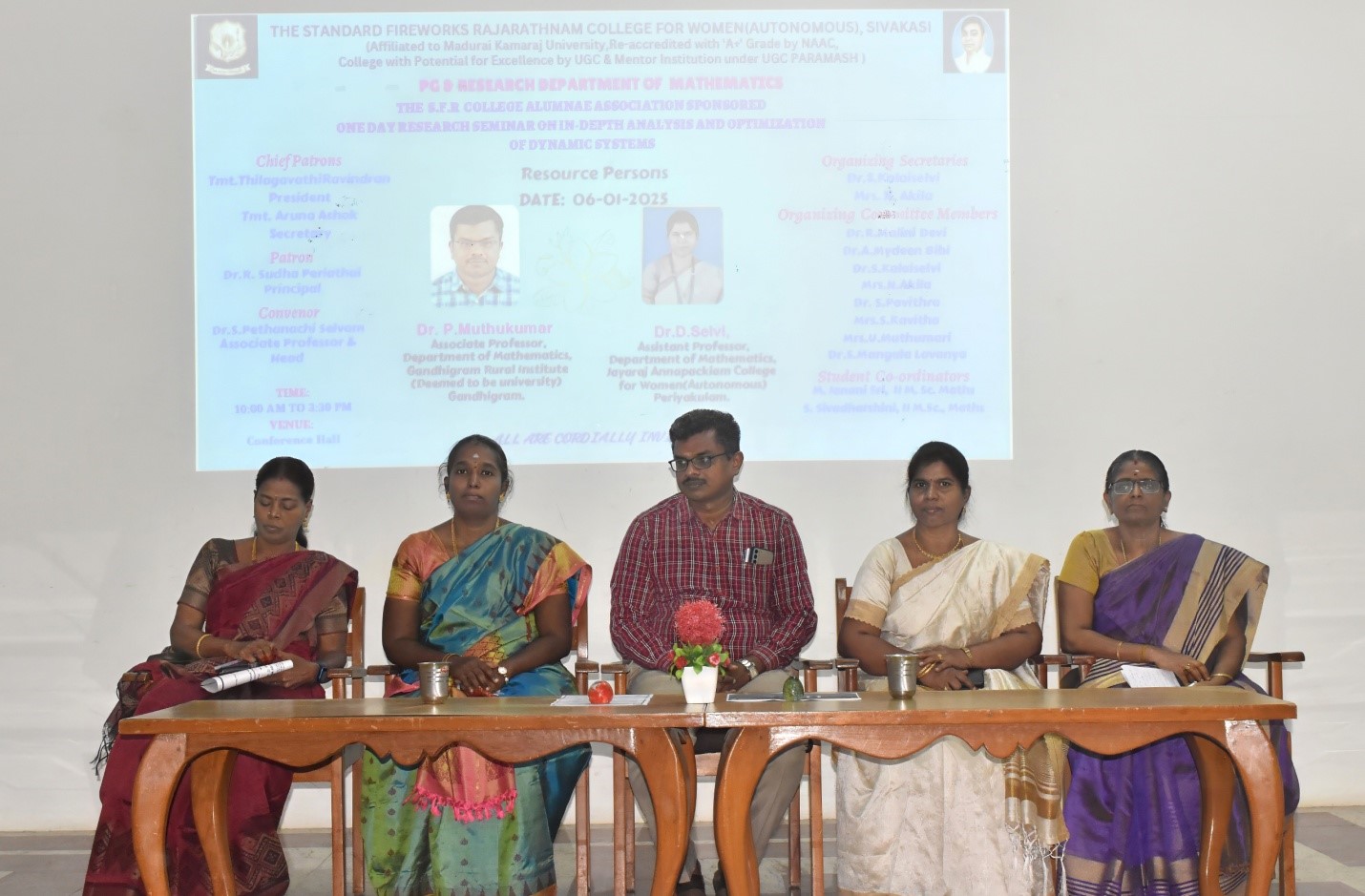
Organized “One day Research Seminar on “In Depth Analysis and Optimization of Dynamic Systems” on 06.01.2025
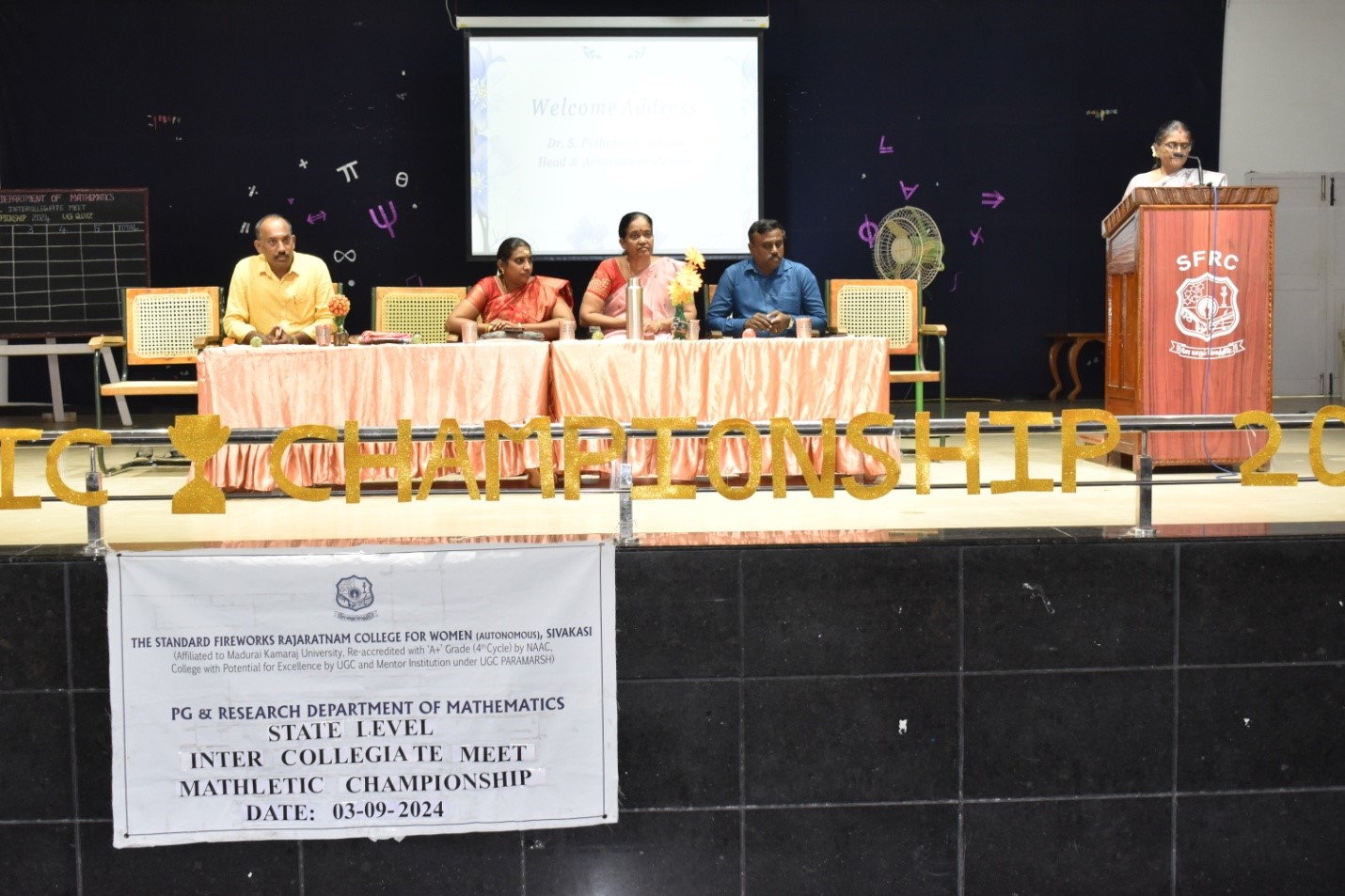
Organized “State Level Inter-Collegiate Meet -Matheletic Championship” on 03.09.2024 & 321 Students from 24 various colleges participated
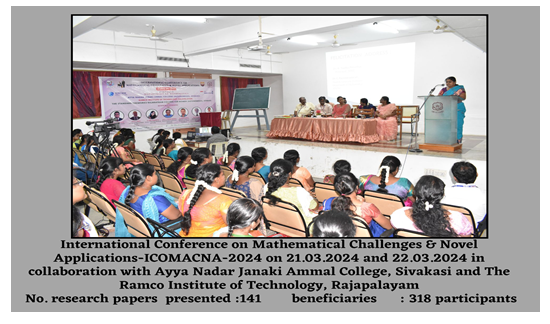
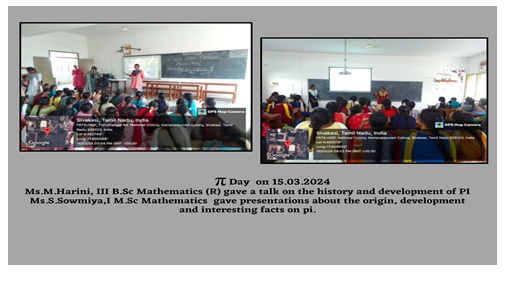
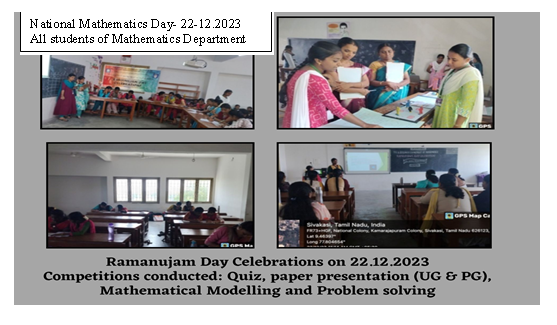
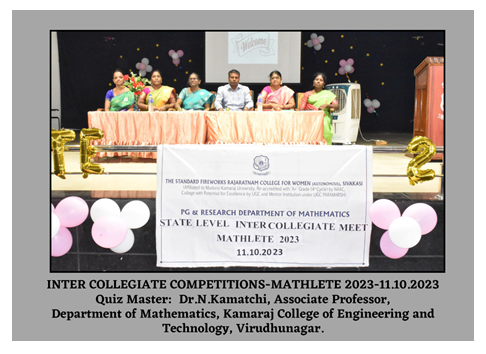
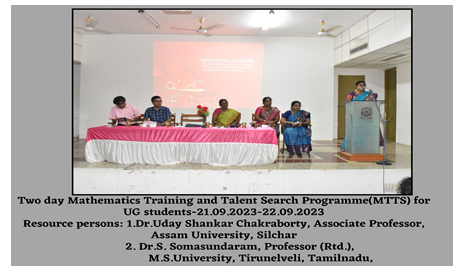
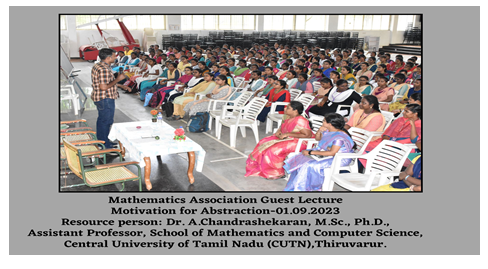
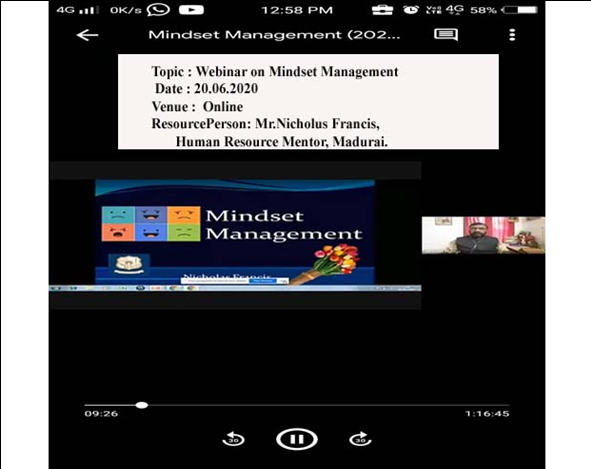
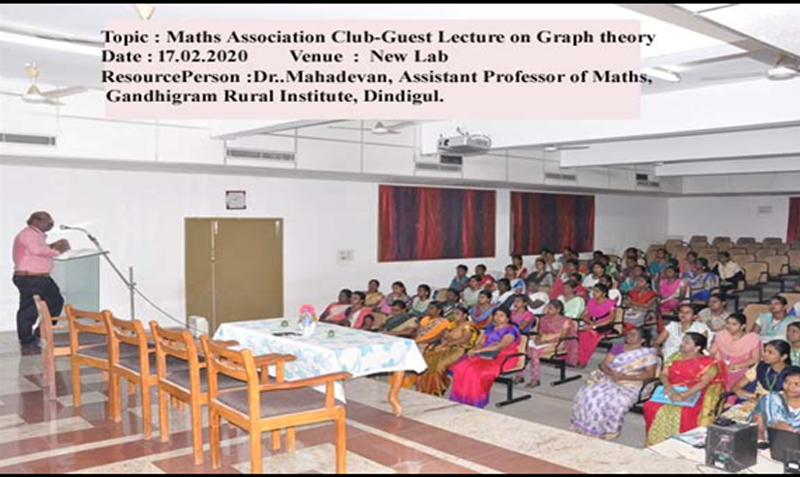
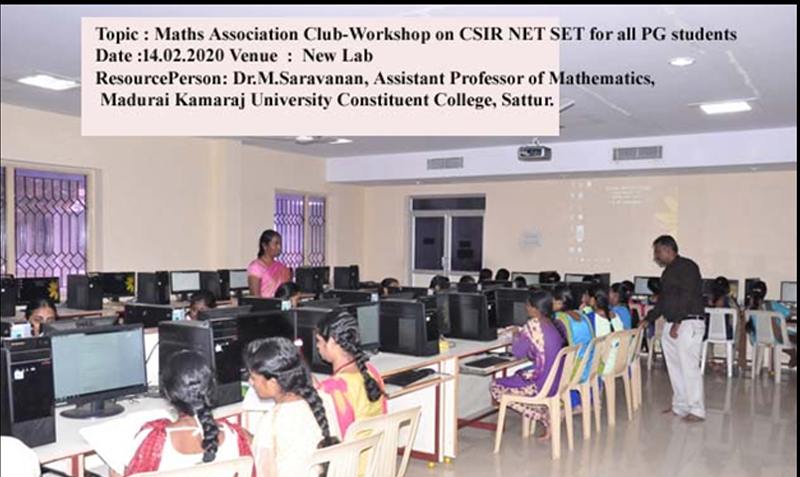
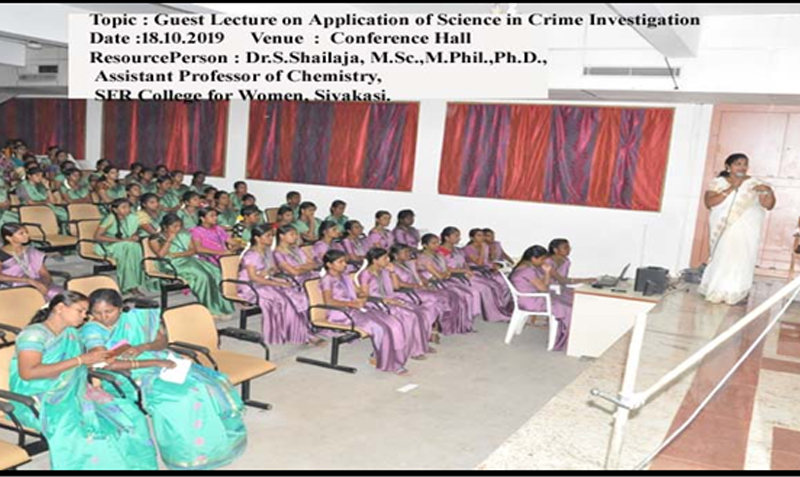
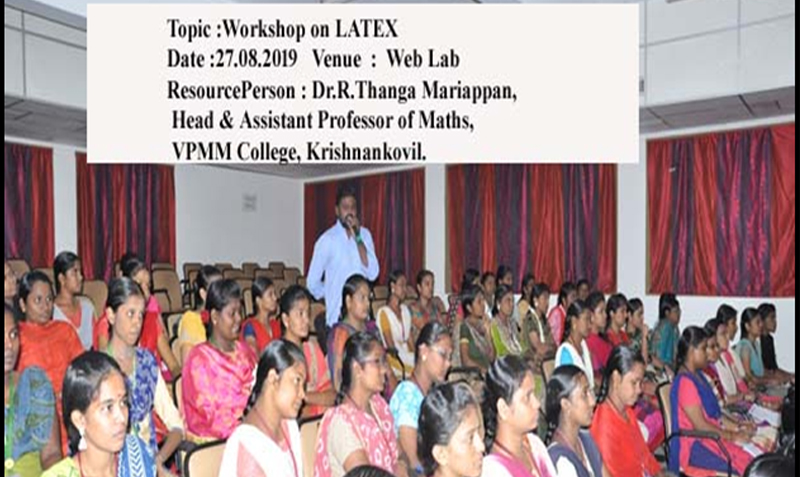
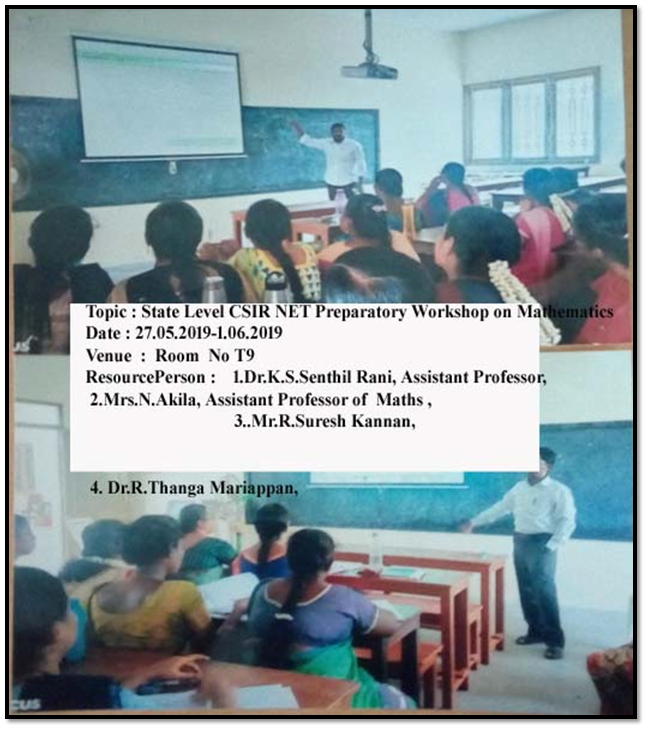
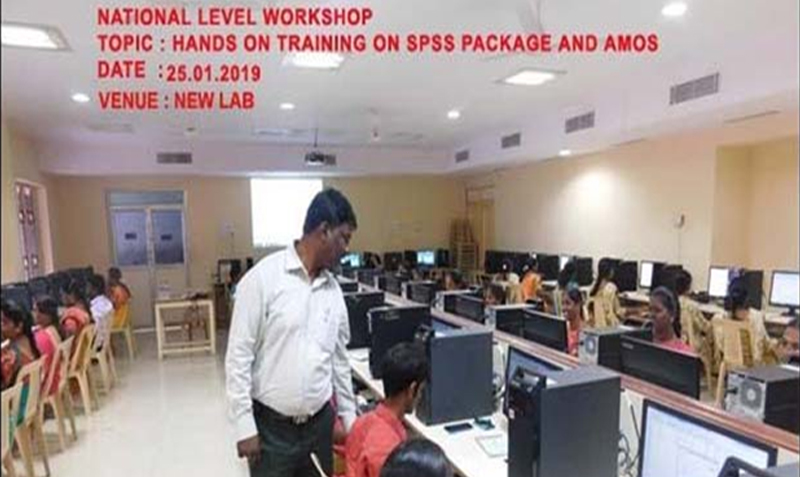
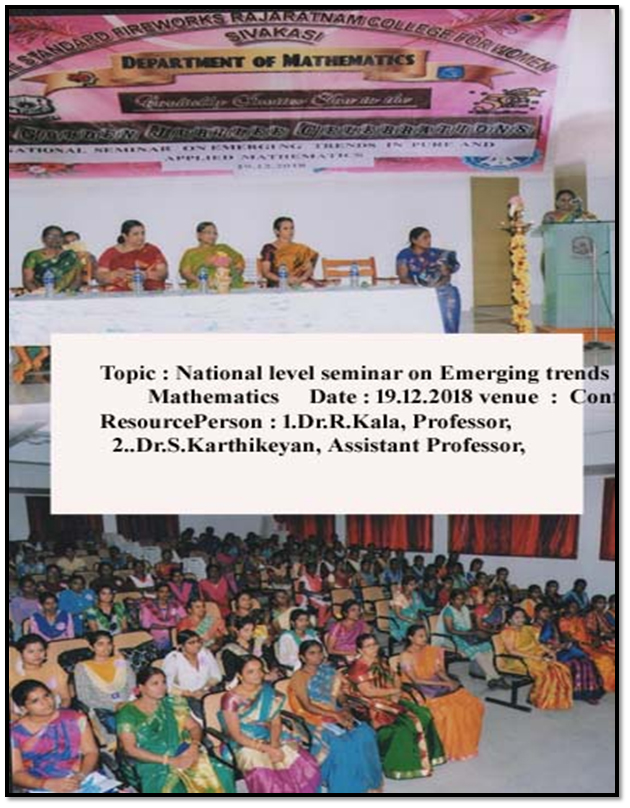
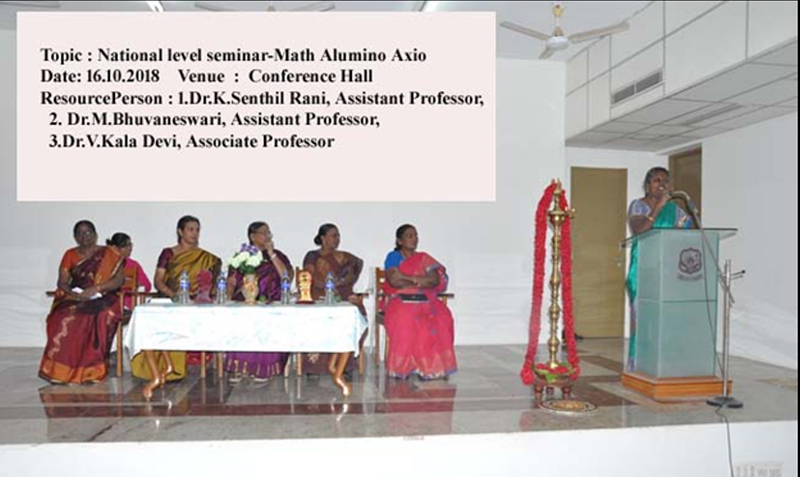
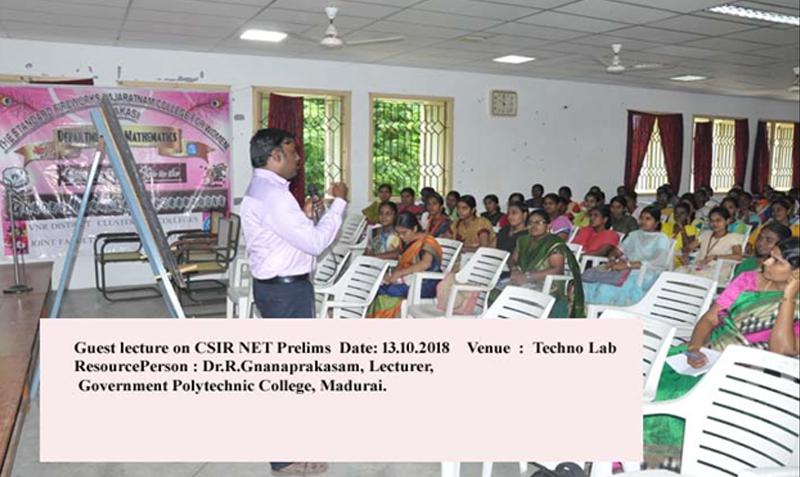
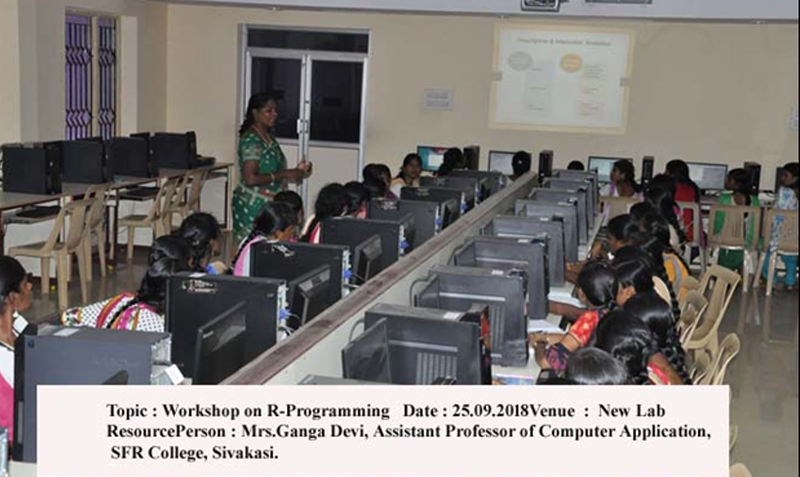
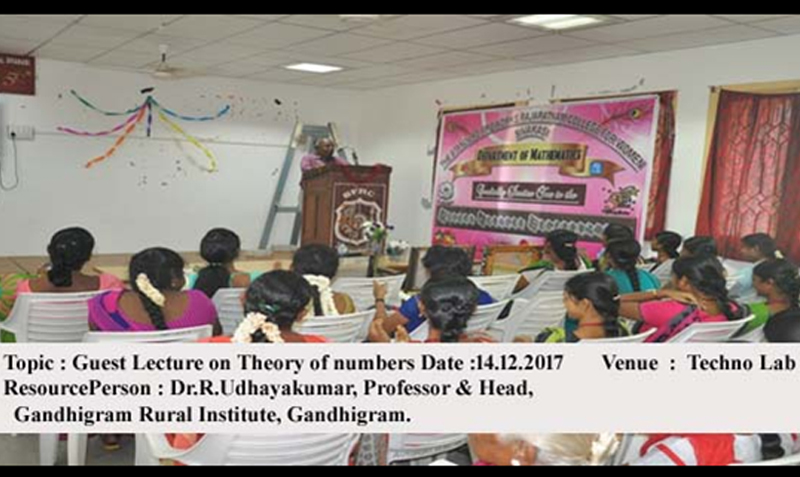
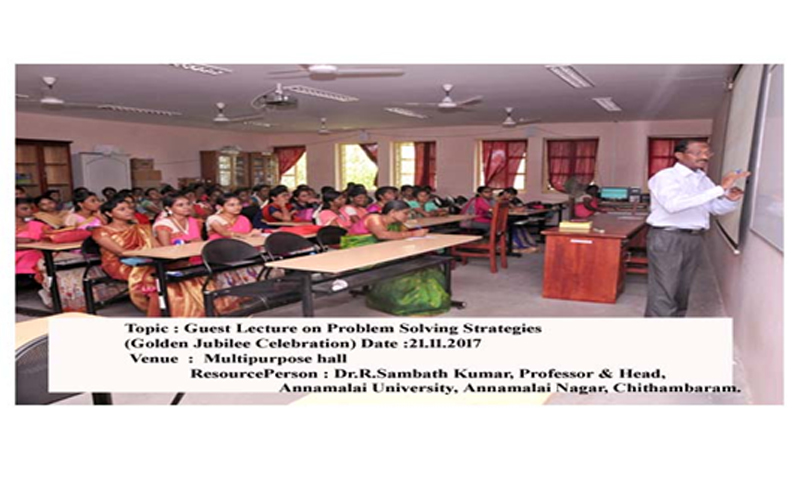
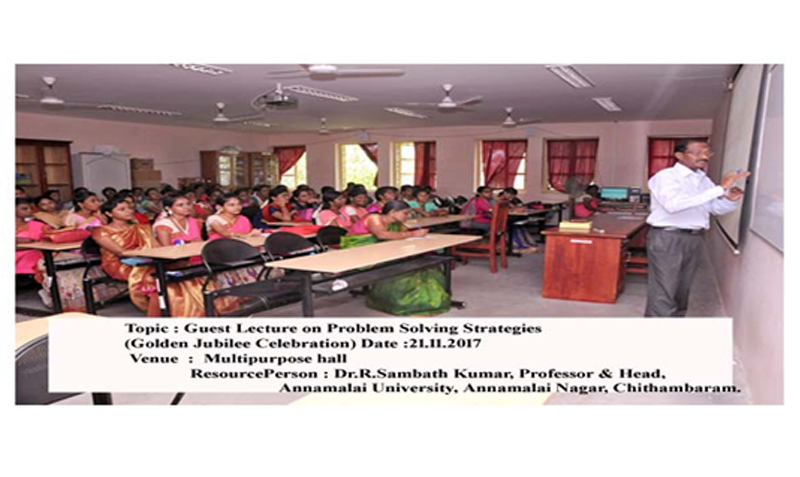
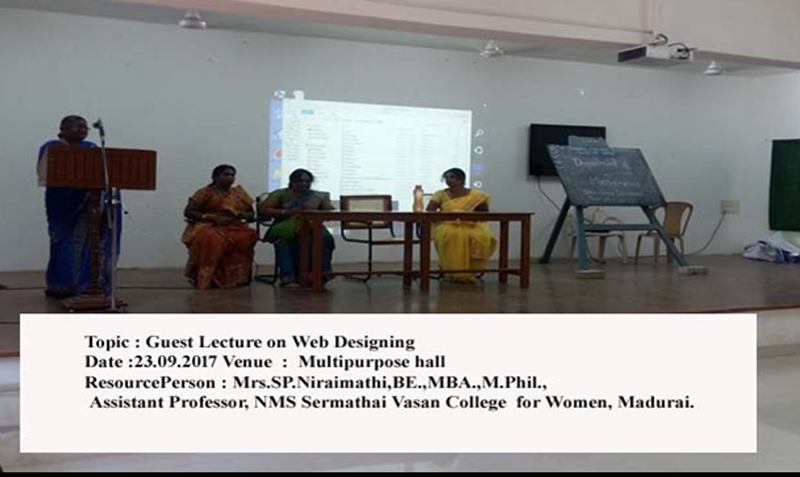
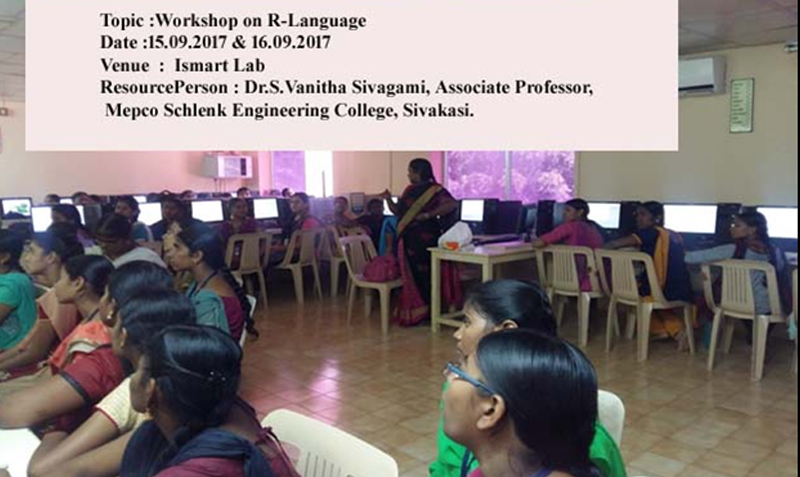
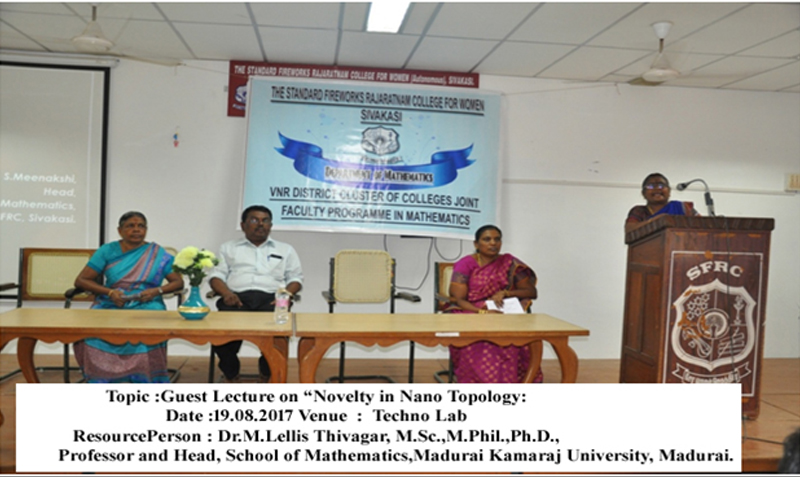
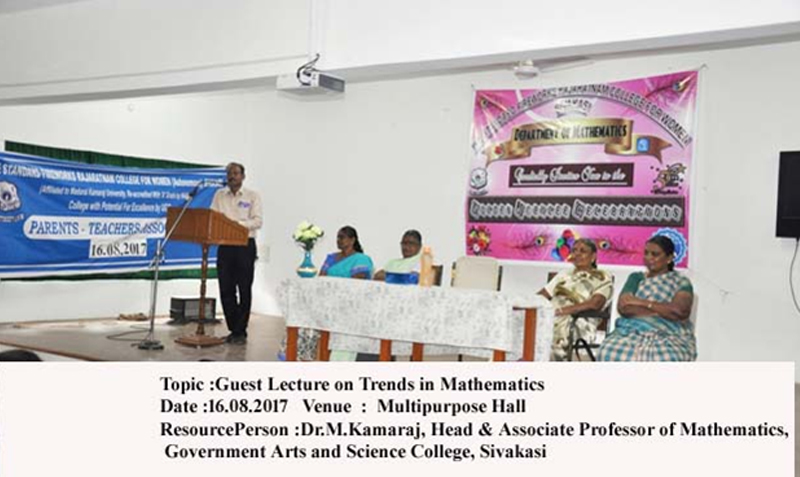
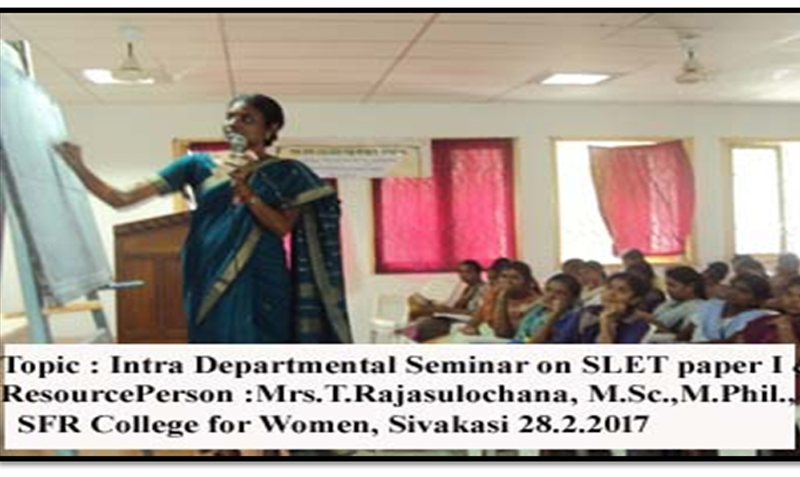
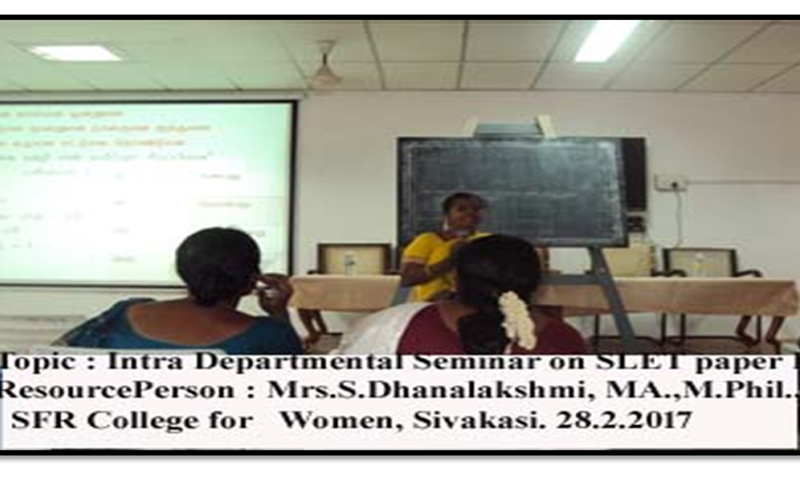
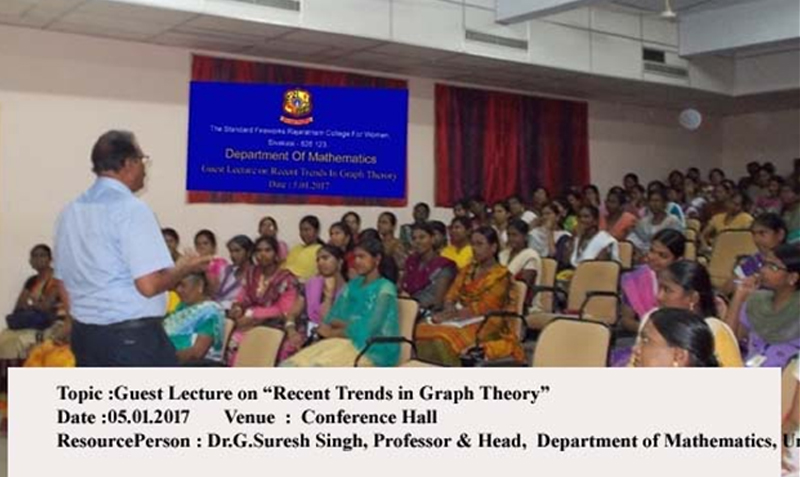
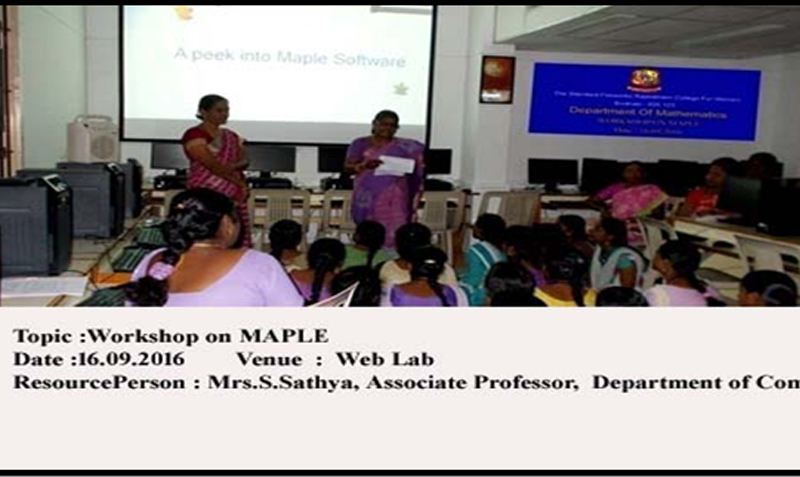
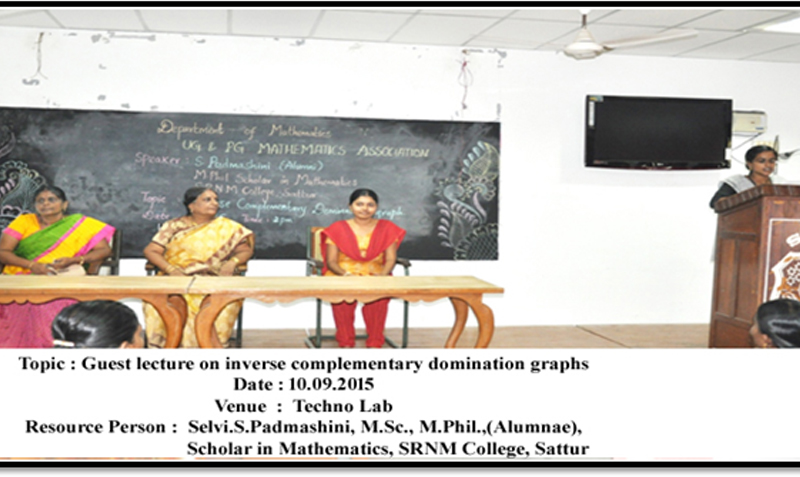
Student Achievements

Ms. K. Vaishnavi and Dr. R. Malini Devi on winning the Best Research Paper Award with Rs.1000 prize (21.06.2025) for their publication in the International Journal of Banking, Risk and Insurance.

Ms. B. Swathi (Batch: 2022–2024) for securing CSIR-JRF
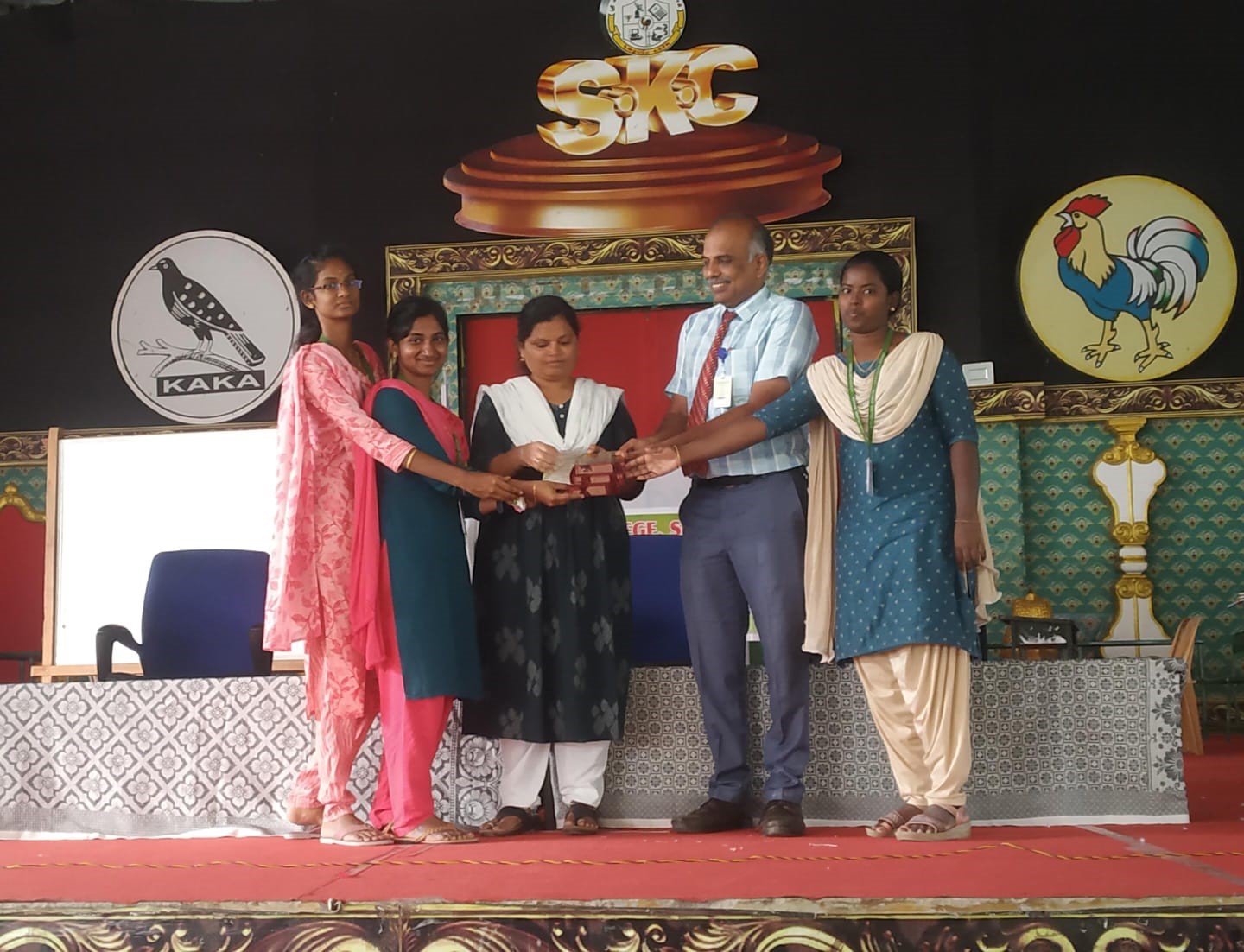
P.Gokularani, M.Jothilakshmi & A.Hemapriya of II M.Sc. Mathematics won First prize in Quiz competition conducted under VNR District Cluster of Colleges joint Faculty Programme in Mathematics, Sri Kaliswari College, Sivakasi on 15.02.2025
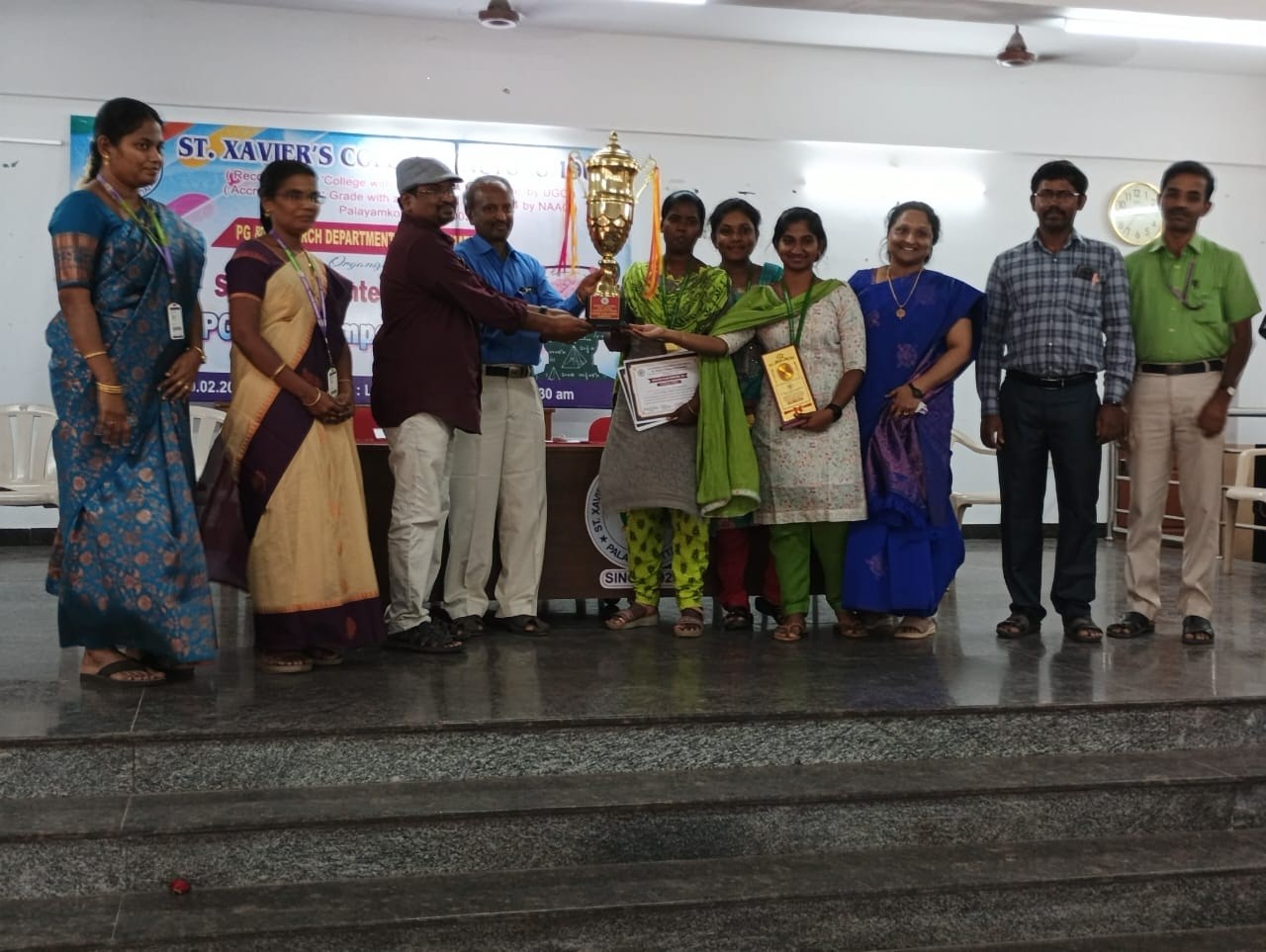
P.Gokularani, M.Jothilakshmi of II M.Sc. Mathematics & M.Maheswari of I M.Sc. Mathematics got First prize in State Level Intercollegiate PG Quiz competition at St. Xavier college, Palayamkottai on 20.02.2025
Highlight: Got Rolling cup for the third time.
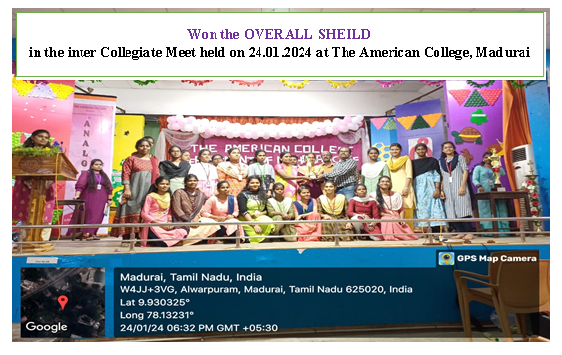
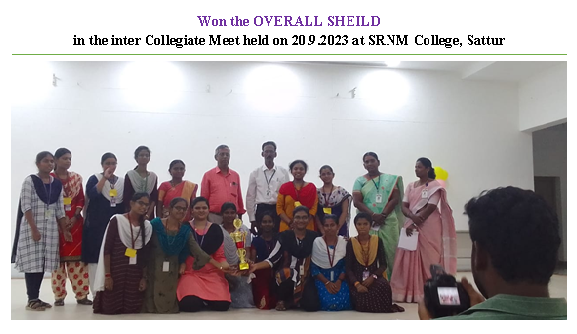
| Date | Name of the Student | Name of the Event | Organiser | Prize | |
|---|---|---|---|---|---|
| 2019-2020 | |||||
| 27.08.2019 & 28.07.2019 |
K.Vibhooshna, M.Aashika R.Mahalakshmi |
Women’s Badminton Tournament at MKU | University | IV place | |
| 22.12.2019 To 25.12.2019 |
M. Aashika | Badminton Tournament | VHNSN College | Third Prize | |
| 27.09.2019 | P.Sankareshwari | Paper presentation | Sri Kaleeswari College, Sivakasi | I prize | |
| A.Deepshika | Mathematical Modelling | I prize | |||
| R.Malavika L.Subha lakshmi |
in Mathematical Rangoli in Prime Math Fete | II prize- won overall shield | |||
| 06.02.2020 | P. Sankareswari | Paper Presentation | Mathematics Carnival 2020 Lady Doak College,Madurai |
I Prize | |
| A.Deepshika | Beautiful Mind | II Prize | |||
| M.Mahitha Dhenu Shri |
Mathematical Modelling | III Prize | |||
| 13.02.2020 | V.Renuka M.Lavanya |
Math Rangoli | PSR Math Carnival 2K20 PSR Arts Science College, Sivakasi. |
II Prize- won overall shield | |
| T.Sakthi Priya S.Muthumari |
Math Mehandi | ||||
| M.Niroja | Written Quiz | ||||
| 2018-2019 | |||||
| 19.1.2019 | S.Kavitha | Paper presentation in VNR cluster college programme | ANJA College ,Sivakasi | I Prize | |
| 06.03.2019 | S..Kavitha R.Niruba R.Vandhana |
The state level intercollegiate PG Quiz competition | St.Xavier’s college,Palayankottai | I Prize | |
| 08.03.2019 | R. Indira T. Subathra |
Malar kolam at V.P.M.M carnival -2k19 |
V.P.M.M Arts and Science college | III Prize CashPrize :Rs.2,000 |
|
| 01.10.2018 & 02.10.2018 |
K.Viboshana | Batmiton Inter university tournament at Madurai Kamaraj University | University | 4-th Place | |
| 23.12.2018 | P.Jeyasree | Taekwondo | Reginal level -Virudhunagar district Taekwondo championship-2018 | Gold medal | |
| 2017-2018 | |||||
| 29.7.17 | S.Dharini | Cluster of colleges-Paper Presentation | Devanga Arts College, Aruppukottai | I Prize | |
| 28.9.17 | R.Dharini | Problem Solving Competitions | Golden Jubilee Celebrations of Mathematics (S.F.R college,Sivakasi) |
I Prize | |
| S.Thangavennila | II Prize | ||||
| 28.9.17 | S.Ponroja R.Vanthana V.Malarvizhi |
UG Quiz Competition | I Prize | ||
| 28.9.17 | M.Saranya M.Vaishnavi P.Krishnaveni |
UG Quiz Competition | II Prize | ||
| 28.9.17 | M.Mathurima, P.Gurupackiyam R.Menaka |
UG Quiz Competition | III Prize | ||
| 26.9.17 | R.Vanthana | Paper Presentation Competition | Golden Jubilee Celebrations of Mathematics (S.F.R college,Sivakasi) |
I Prize | |
| M.Vaishnavi | II Prize | ||||
| M.Saranya | III Prize | ||||
| A.Priyavanitha | III Prize | ||||
| 19.12.17 | S.Dharini | Paper Presentation | Intracollegiate Meet Lady Doak College,Madurai |
I Prize | |
| 19.12.17 | M.Swetha S.Dhivya |
Model Presentation | Intracollegiate Meet Lady Doak College,Madurai |
IIIPrize | |
| 19.12.17 | M.Ponroja M.Vaishnavi R.Vanthana |
Quiz | Intracollegiate Meet Lady Doak College,Madurai |
III Prize | |
| 29.12.17 | S.Jeyabalasundhari M.Kaleeswari |
PG Quiz | Sri Krishnasamy Arts & Science College | II Prize | |
| 19.2.18 | A.Menaka | Essay Writing | Citizen consumer club | III Prize | |
| 19.2.18 | S.Karpagalakshmi | Verse Writing | Citizen consumer club | III Prize | |
| 2016-2017 | |||||
| 23.9.16 | S.Kavitha | Paper presentation | Sri Kaliswari College, Sivakasi | II Prize | |
| 23.9.16 | M.Saraswathi S.Kaleeswari M.Shanmuga Priya P.Muthulakshmi K.Suvetha |
As you like it | Sri Kaliswari College, Sivakasi | II Prize | |
| 14.12.16 | M.Palanai selvi R.Niruba S.Gayathri |
Quiz | Lady Doak College, Madurai | II Prize | |
| 14.12.16 | V.Rabini A.Muthuvigneshwari L.Mohana Sundari |
Dumb-C | Lady Doak College, Madurai | III Prize | |
| 1.2.17 | S.Kavitha M.Palaniselvi |
Quiz | Gandhigram Rural Institute, Dindigul | II Prize | |
| 1.2.17 | S.Selva priya S.Thangavennila |
Puzzle Solving | Gandhigram Rural Institute, Dindigul | III Prize | |
| 1.2.17 | B.Shereen Shameema | Paper presentation | Gandhigram Rural Institute, Dindigul | III Prize | |
| 17.2.17 | R.Niruba M.Vaishnavi S.Ponroja |
Quiz | Rajapalayam Rajus’ College, Rajapalayam | II Prize | |
| 24.2.17 | M.Palaniselvi V.Nithiya S.Ponroja |
Quiz | VHNSN College, Virudhunagar | III Prize | |
| 24.2.17 | M.Joneslin Jeya S.Gayathri A.Guru Devi |
Dumb C | VHNSN College, Virudhunagar | III Prize | |
| 14.8.16 | M.Gnanaguru | District Match | AKDR College, Rajapalayam | Bronze medal | |
| 23.9.16 to 2.10.16 |
M.Annapoorani | Foot ball | Vellammal school, Madurai | Gold medal | |
| Tug of war | Silver medal | ||||
| Taek won do | Shield | ||||
| 29.9.16 to 30.9.16 | B.Madhubala | Inter-University Hand Ball tournament |
Fathima College, Madurai | II prize | |
| 2016-2017 | S.Vaisali B.bharathy |
Volley Ball | Madurai Kamaraj University, Madurai | Third | |
| 2015-2016 | |||||
| 21.8.15 | S.Shalika Parveen | Essay writing | Intra collegiate meet conducted by Research Centre in Commerce, S.F.R.College for Women, Sivakasi |
I Prize | |
| 18.12.15 | M.Vaishnavi | Essay Writing | S.F.R.College, Sivakasi |
III Prize | |
| 19.12.15 | S.Dhanalakshmi | Paper presentation competition | S.F.R. College, Sivakasi | I Prize | |
| 23.12.15 | M.Thirumalaiselvi | Gandhian Thought Examination | The velammal Institution, Madurai | Third class | |
| 18.2.16 | A.Dhilsath K.Karthika |
Tamil essay writing | S.F.R.College, Sivakasi | I prize II Prize |
|
| 20.2.16 | B.Chitradevi G.Pratheeba |
Quiz competition in current events & sports | S.F.R.College, Sivakasi | I Prize II Prize |
|
| 26.2.15 | S.Gokila M..Kaleeswari S.Kavitha |
Quiz competition | Rajapalaym Raju’s College | III prize | |
| 7.8.15 &8.8.15 | M.Saraswathy R.Nageshwari M.Ponlavanya M.Lavanya B.Madhubala G.Krishnaveni |
Folk dance | SFRC, Fine Arts,Sivakasi | III Prize III prize III prize III prize III prize I prize |
|
| 7.8.15 | M.Vaishnavi | Paper Quiling Art from waste |
I prize I prize | ||
| 7.8.15 | M.Lavanya | Kuravan kurathi dance | –II Prize | ||
| 24.10.15 to 4.11.15 | B.Madhu Bala | Special National Integration camp | Jaisalmer in Rajasthan | Silver medal for Group song | |
| 2.1.16 | B.Madubala | Group Song | 2(TN) Girls BN NCC, Madurai | II Prize | |
| 19.1.16 | V.Nithiya | Quiz Competition conducted by NSS | S.F.R.College, Sivakasi | Cash prize Rs.500 | |
| 16.8.15 | M.Gnana Guru | Taek-won-do | VNR Dist. Level A.K.D.R. College, Rajapalayam |
Silver medal | |
| 5.10.15 & 6.10.15 | B.Shereen shameema L.Mohana sundari M.Pon lavanya |
Inter universiry Ball-badminton-match | C.P.A. College, Bodi | III prize | |
| 4.10.15 | M.Pon lavanya | Ball-badminton- CM Trophy tournament | Virudhunagar stadium | I prize (selected for district team) | |
| 2015-2016 | G.divya deepti | Hand ball University match | MKU. Madurai | Shield | |
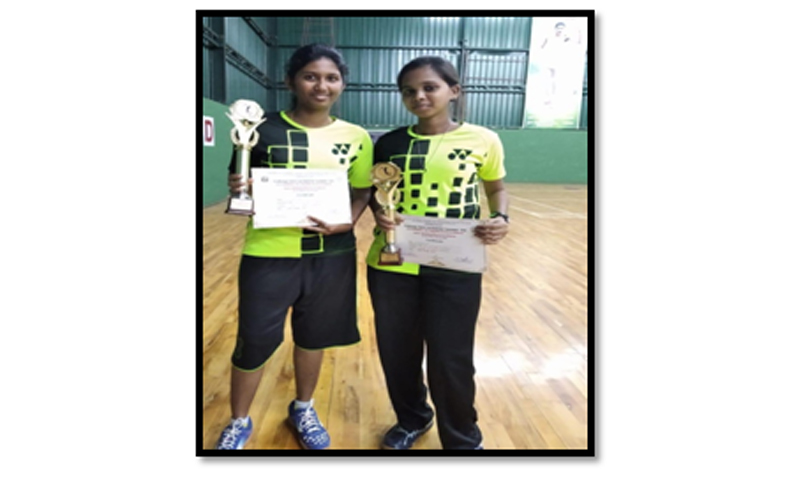
S.Manisha of II B.Sc Nutrition and Dietetics and M.Aashika of I B.Sc Maths secured Runner up position in the district level Badminton tournament held at VHNSN College, Virudhunagar on 25.12.2019.
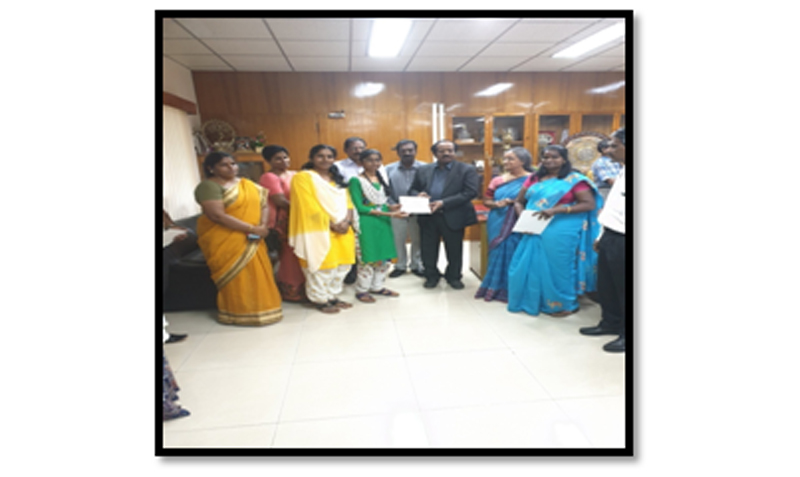
Chess achiever A.Shaarudharshini of III B.Sc Maths (SF) was honoured by the Vice Chancellor Dr.M.Krishnan, Madurai Kamaraj University for securing sixth position in University level chess tournament on 31.07.2019
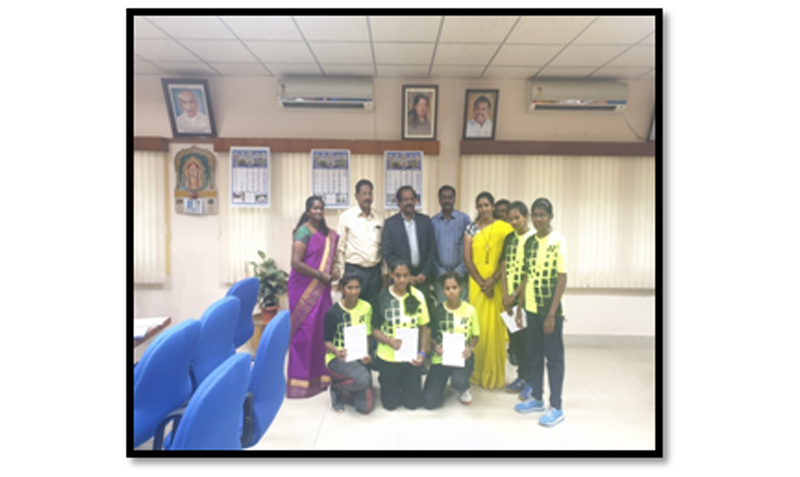
Players honoured by the Vice Chancellor Dr.M.Krishnan,
Madurai Kamaraj University for placing third position in University level Badminton tournament on 28.08.2019 .
Ms.K.Vibhooshna of II B.Sc Maths(CA) is one of the team member
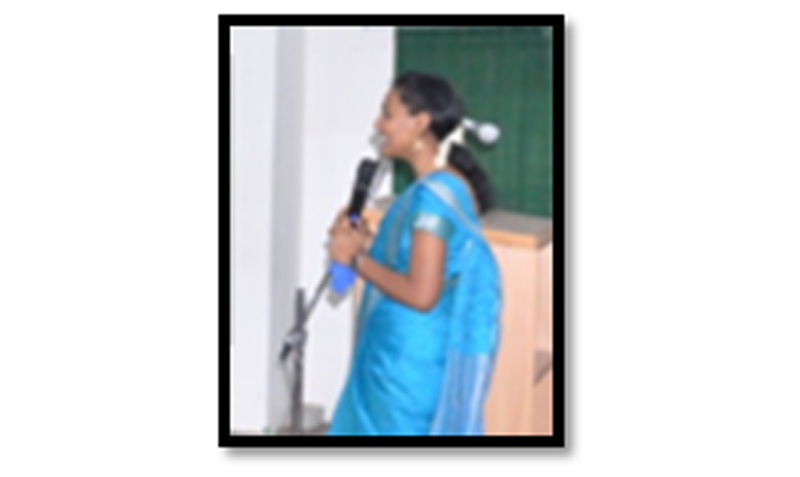
Ms.S.Ponroja of B.Sc Mathematics(CA) passed in Bank Professionary Officer Exam and Appointed as Assistant Manager in Tamilnadu Grama Bank,Salem.
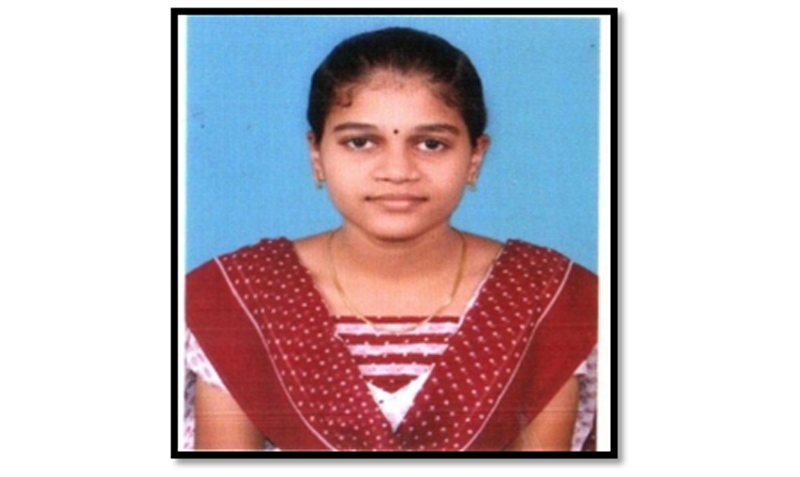
Ms.S.Kavitha M.Sc Maths student Cleared CSIR-NET with JRF in the year 2019 -2020 and Doing Ph.D in Central University,Thiruvarur with Fellowship Stipend.
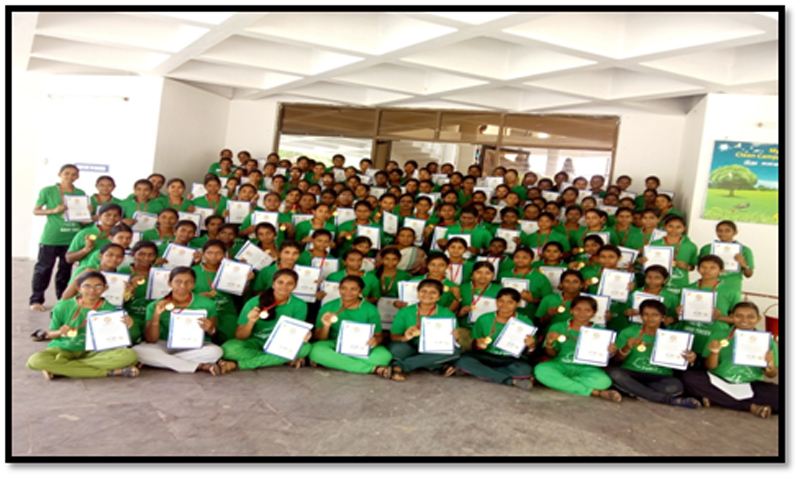
The World”s Largest Human Tree Formation Participants
17.08. 2019
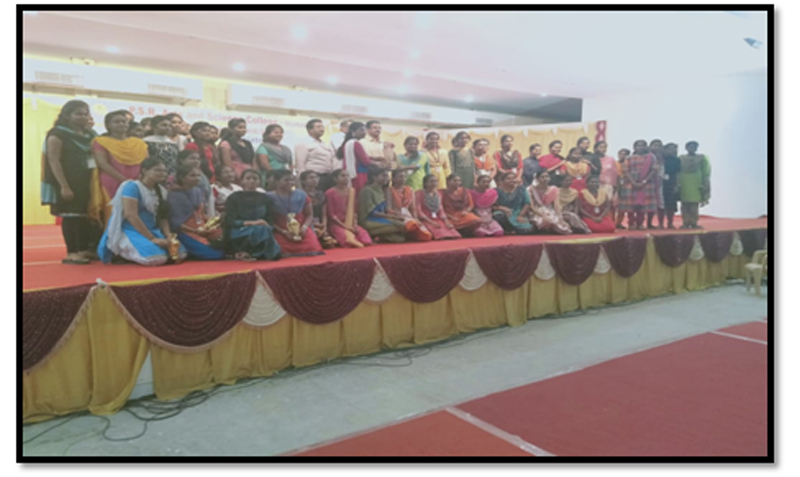
Won the OVERALL SHIELD
in the inter Collegiate Meet held on 13.02.2020 at PSR Arts & Science College, Sevalpatti
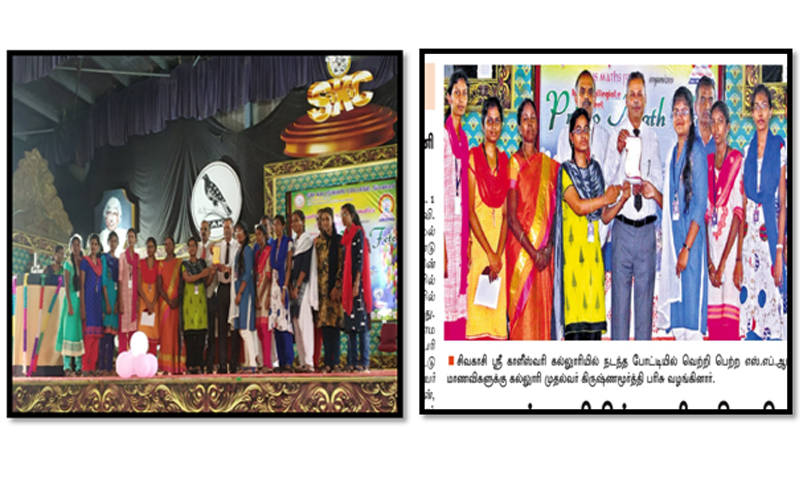
Won the OVERALL SHIELD
in the inter Collegiate Meet held on 27.09.2019 at Kalishwari College, Sivakasi
Contact Us
Thiruthangal Road , Sivakasi - 626123 , Tamil Nadu , India
Telephone Number
+91 4562-220389 FAX Number
+91 4562-226695 Email ID
sfrc@sfrcollege.edu.in
